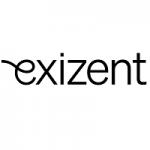Technology has rapidly developed in the past decade; smartphones, on-demand streaming services, smartwatches with the ability to measure heart rate and blood oxygen levels, electric cars, AI technology, the list continues. Many of these developments have become so quickly engrained in our daily lives that they now go relatively unnoticed, and their impact all but forgotten on a daily basis.
If we expect the latest technology in our daily lives, why do we expect anything less when it comes to the technology that can help in our day-to-day working lives? The legal industry, particularly those working in estate administration, have been slower to adopt new technologies compared to other industries and legal specialisms.
Until recently, the technologies on offer to probate or executry practitioners weren’t at the level that made them easy to adopt or use. Many supposedly probate software’s, whether purpose built or a component of a more general software product, were built in the 90s with clunky user interfaces, local installation needed and were complex to learn with probate product improvements few and far between. They bear little resemblance to modern productivity tools or what probate professionals require for today. It really was no surprise that legal professionals didn’t adopt technology or were put off looking for a new software after years of tiresome work to get the dated system they do have, to work for their team.
Fast forward a few years and with several software tools and platforms having been developed in recent years to streamline the probate process, it’s no longer the forgotten industry. However, research from our Bereavement Index still highlights that the available technology isn’t being adopted as quickly as it could be. Our research found that three out of four legal professionals in 2021 said there are many things that could be done to improve the bereavement process including building better relationships with financial institutions and having dedicated probate software, yet 70% have not enhanced any area of the process across the last year.
So, what is really holding legal professionals back from adopting the latest technology? We’ve highlighted the top five benefits legal professionals can expect with innovative, cloud-based LawTech software, dedicated to the probate industry, compared to the more traditional forms of software available in the market:
-
Accessibility, Collaboration and Resilience
By choosing a cloud-based software, users can access their work from anywhere at any time, with an internet connection. This makes it an ideal solution for businesses with remote workers or multiple office locations, allowing employees to collaborate on cases in real-time, increasing productivity.
-
Automation
By adopting modern technology, users can expect to benefit from numerous time saving automated features. For example, probate software such as Exizent, automates the creation of Court and Inheritance Tax forms using the data that has already been entered into the dashboard. This saves users up to 3 hours of time per case plus reduces risk of error through rekeying.
-
Intuitive
Cloud-based software is designed with the end-user in mind, with a focus on simplicity and ease of use. This means that the software is intuitive, straightforward, and quick to adopt, with features that are easy to understand and most importantly, to use.
-
Innovation
Cloud-based technology providers invest heavily in research and development to improve their services continually. This means businesses can benefit from the latest advancements immediately without having to invest in costly server hardware or outages to upgrade. What’s more, LawTech businesses such as Exizent with a modern service-design led ethos, encourage users to provide regular feedback and do structured research, allowing practitioners to be the voice of future product developments.
-
Security
Cloud-based technology providers invest heavily in security measures to protect their customers’ data. This includes data encryption, access controls, and backups to prevent data loss in case of a disaster or outage. Cloud-based solutions also provide businesses with built-in resilience, ensuring continuity of business operations.
By choosing innovative, cloud-based LawTech software, legal professionals can benefit from the features listed above, and more. These benefits can help to increase productivity, save time, and reduce errors, ultimately leading to a better experience for both legal professionals and their clients. With the increasing pace of technological development, it’s essential for the legal industry to embrace the latest technology to stay ahead of the curve and meet both the changing demands of employees and clients.
To discover more about Exizent’s cloud-based software, book a demo with one of our team members or sign-up for a free trial to start exploring Exizent for yourself.
This article was submitted to be published by Exizent as part of their advertising agreement with Today’s Wills and Probate. The views expressed in this article are those of the submitter and not those of Today’s Wills and Probate.



















